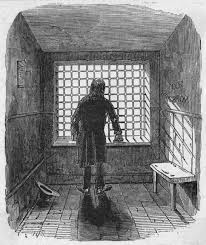Imprisonment for Debt in Israeli Law
Debtor’s prison has a long – but not proud – history in many of the world’s legal systems, including Israel’s. During the 1970’s and 1980’s, for example, some 500,000 letters were sent threatening prison to those who could not pay their debts, and some 20,000-40,000 people actually served time in prison for their inability, or unwillingness, to pay said debts. And many of these debts for which people were sent to prison were not criminally related, nor even connected to court orders, but were straight out civil debts, many of them connected to credit cards, loans and the like.
Part of the support for such a policy of imprisonment for debt derived from the odd coupling of powerful capitalist banks on one hand – who argued that economic necessity required vibrant a vibrant banking system, and this system depended on strong enforcement against recalcitrant debtors – and socialist kibbutzniks on the other hand – who viewed economic bankruptcy emanating from excessive consumerism as a form of moral bankruptcy worthy of punishment.
In contrast to both of these systems is the Torah’s concern for the debtor, as can be witnessed in such verses as: “If you lend money to any of My people, even to the poor with thee, thou shalt not be to him as a creditor, neither shall ye lay upon him interest” (Exodus 22:24); “No man shalt take the mill or the upper millstone to pledge, for he taketh a man’s life to pledge” (Deuteronomy 24:6); and “When thou dost lend thy neighbor any manner of loan, thou shalt not go into his house to fetch his pledge … And if he is a poor man, thou shat not sleep with his pledge; thou shalt surely restore to him the pledge when the sun goeth down, that he may sleep in his garment” (Deuteronomy 24:10-13).
As a result of these instructions, Justice Elon upheld the legitimacy – but severely limited the application – of the Executions of Judgements Law of 1967. Initially, that law allowed the state to imprison an individual who has failed to pay his debt by a certain date; the caveat was that such a person had the means to pay the debt, and the law stated that it was the state’s right to make a determination if such an individual had such means. Justice Elon noted that most of these determinations were ‘rubber-stamped’ evaluations and many genuinely poor people were imprisoned illegally. As a result, he required actual court supervised evaluations rather than mere default decisions.


